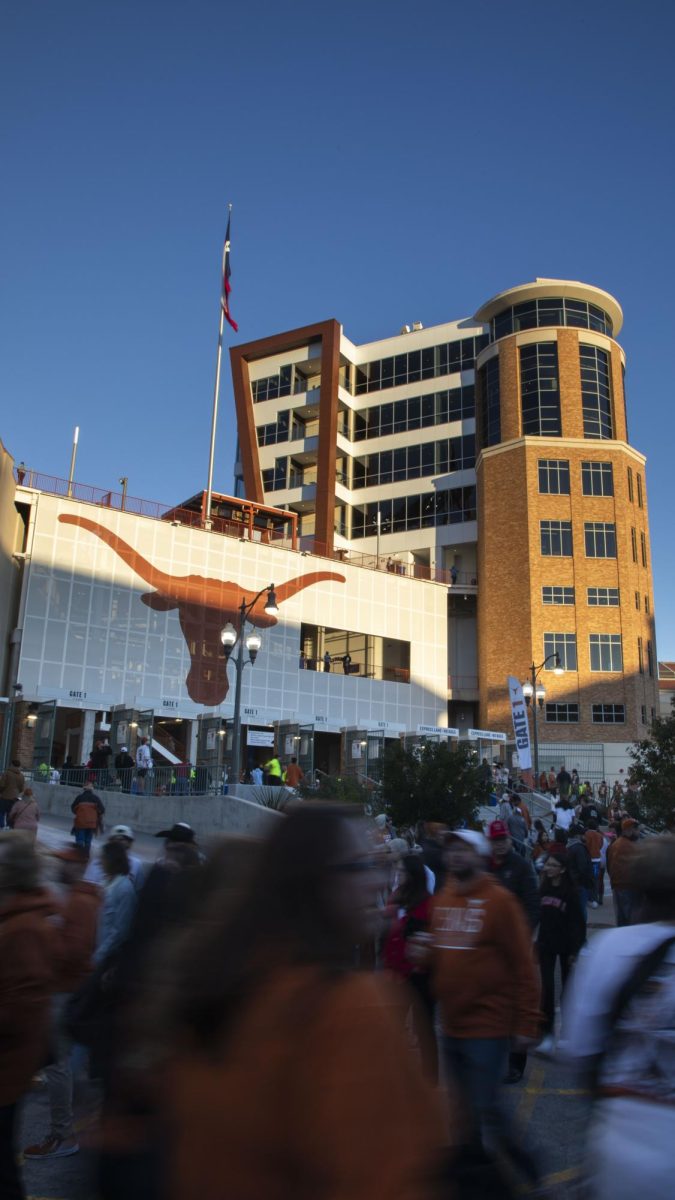Editor’s Note: The implementation of Senate Bill 17 meant the loss of diversity, equity and inclusion offices, positions and resources throughout campus. The Texan’s projects department reached out to various members of the UT community to find out how SB 17 changed their experiences on the Forty Acres. These are their stories.
When Ceasar Avila reflects on his time at UT, there’s one program that has been particularly life-changing for him.
The Product Prodigy Institute gives students from under-resourced backgrounds the opportunity to learn about product management for one to two years. The skills he’s learned through the institute have been invaluable, but Avila said his professors have been equally essential to his experience.
“It’s been one of the most transformative programs I’ve been in,” said Avila, a senior studying human dimensions of organizations. “In my whole college experience, I have never had a program I’ve learned so much from.”
The program and the people in it have reminded him of his learning experience in Houston, where he grew up.
“Throughout my college experience, I’ve been in classrooms where I don’t see as many people that look like me,” Avila said. “This is one of the first classes and programs where … it’s just so diverse that, to me, that feels more normal.”
On Tuesday, April 2, President Jay Hartzell announced in a universitywide email that further review of Senate Bill 17 determined the University needed to dissolve the Division of Campus and Community Engagement along with several programs and positions previously reconfigured to comply with SB 17.
“We have concluded that additional measures are necessary to reduce overlap, streamline student-facing portfolios, and optimize and redirect resources into our fundamental activities of teaching and research,” Hartzell said in the email.
The Product Prodigy Institute was housed under the Office of Inclusive Innovation and Entrepreneurship, which was a subset of the DCCE.
Several programs are set to transfer to other areas of the University, but the Product Prodigy Institute is currently scheduled to shut its doors on July 5. In a joint statement, the OIIE, Product Prodigy Institute and WIELD Texas said they hope to find a new home for its students and programs.
“The announcement has taken us by surprise,” the statement said. “The transformations we’ve witnessed over the past six years … has been nothing short of remarkable.”
After being told at the start of the semester that the program would remain intact, Avila said the April 2 decision was unexpected for him as well.
“There was just no (prior) indicators that it was (potentially) being cut,” Avila said. “It was just a complete shock.”
Sar Taylor, a human dimensions of organizations junior, said it’s been difficult to see several resources and sources of community disappear for students, including themself and Avila.“It’s heartbreaking, in a way,” Taylor said. “It’s really life-changing things that are being taken away from people without reasonable explanation or cause.”
Avila will graduate this coming December, but he said he feels concerned for students who might not have the experience he had through the Product Prodigy Institute.
“That program, that classroom is a safe space for me,” Avila said. “Those are the types of programs that are being lost. I can only imagine what other students are losing too.”
The institute will have its Demo Day on April 25, an event where students will showcase the entrepreneurial skills they’ve learned over the semester.
“It’s an opportunity to showcase the significant impact of our collective efforts and the bright futures our students are building,” the statement said.
Avila said the pandemic has made changes within the University desensitizing, but this semester’s changes have marked a turning point.
“What’s been different about this semester is the feeling of defeat, and the visceral reactions I’m getting from my professors,” Avila said. “I’ve seen other professors cry in front of us. … We’re being forced to be very human with each other.”
SB 17 has changed Avila’s remaining time at the University, but he said he knows there are other students experiencing even worse effects.
“I would like to be a human reminder that what they are doing has real impact on people’s lives in major ways,” Avila said. “They didn’t close down a little mart on campus, they closed down something that has changed my life.”
In terms of creating individual impact, Taylor said students still have power in their classrooms to talk about the challenges they’re experiencing and educate one another.
“If you’re a student, and you’re in your classes, and there’s space for you to have these conversations, that’s one of the best spaces to connect with the people around you and to bring attention to the issues that are at hand,” Taylor said.
Even though Avila has never been involved in activism efforts before, he said he hopes he and other students will work to make their voices heard.
“I just can’t believe this is happening,” Avila said. “I have no idea where to start, but I hope enough of us feel the same frustration to do something collectively.”




















